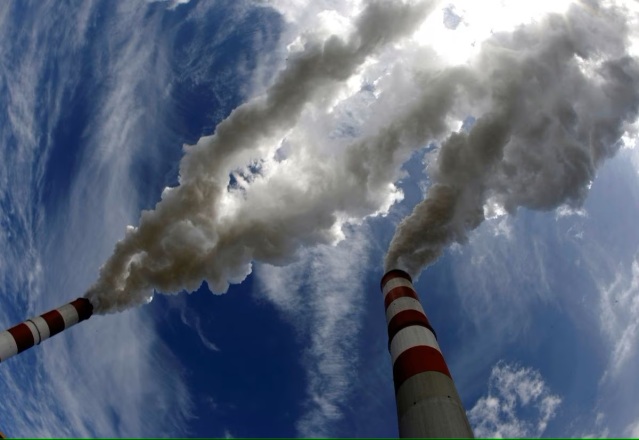
By Anders Lorenzen
The price of carbon pollution in the EU is nearing record-high levels.
In the EU’s carbon market, EU ETS, the cost of emitting a tonne of CO2 on Monday the 20th of February, became close to breaching 100 euros at 98.30 euros. Forecasts of cool weather and expectations of lower wind power output had driven up demand for more fossil-fuel produced energy.
The EU’s emissions trading system forces manufacturers, power companies and airlines, to pay for each tonne of CO2 they emit, in an effort to reduce emissions and to meet climate targets.
A carbon emissions trader at Vertis, Gregory Idil, said: “Temperatures in Northern Europe are actually now forecast to go below seasonal averages next week, which might instigate utilities to increase their hedging activities.”
Upward trend
But overall, the trend is bending upwards for the EU’s carbon market. Since the beginning of this year, the cost of emitting a tonne of CO2 has risen by almost 20%. This is partly due to the high energy prices that much of Europe has experienced this year. Analysts believe that the market could soon breach the 100 euro mark. Luyue Tan, an analyst at Refinitiv said: “The carbon market price is showing strong momentum and could test the 100 euros/t level soon”.
The latest surge in prices is evidence that the mechanism is working, and that it is intensifying companies to invest in renewable energy. Less than a decade ago the EU ETS scheme was in crisis, as it struggled to break 5 euros due to a surplus in allowances.
The push by the EU to wean itself off Russian gas and oil has come with a carbon cost in Europe, as some countries have gone back to consuming more fossil fuels.
But there is hope this will only be a short-term trend as, meanwhile, countries have also increased their clean energy investments. But this short-term trend is also pushing the carbon market price up. And the higher it goes up, becomes less attractive to purchase fossil fuel-produced energy while making clean energy investments much more attractive.
Categories: climate change, emissions, EU, Europe, finance
1 reply »